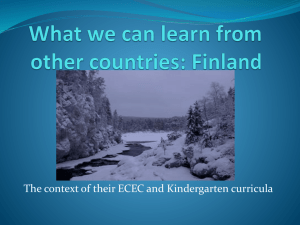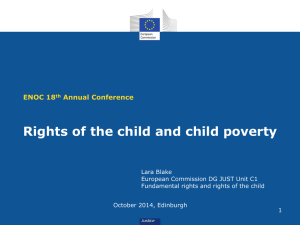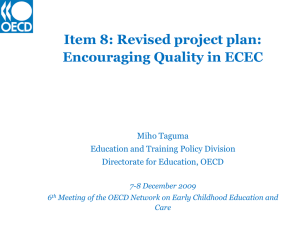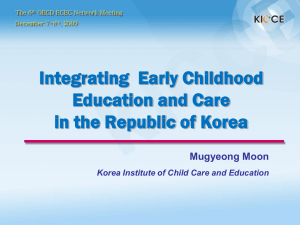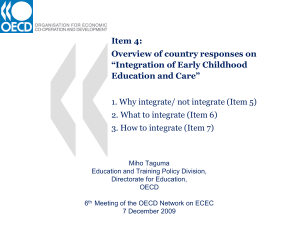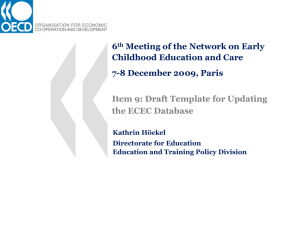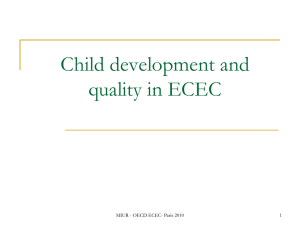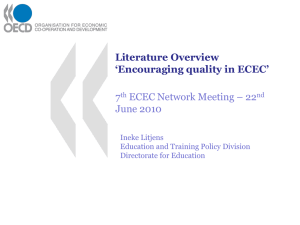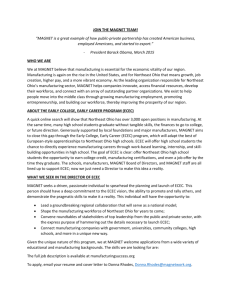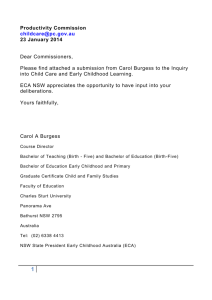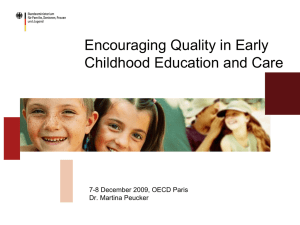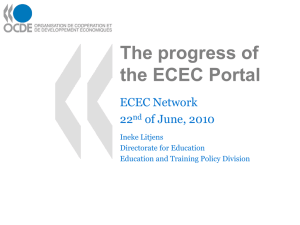Early Childhood Education and Care in Finland
advertisement
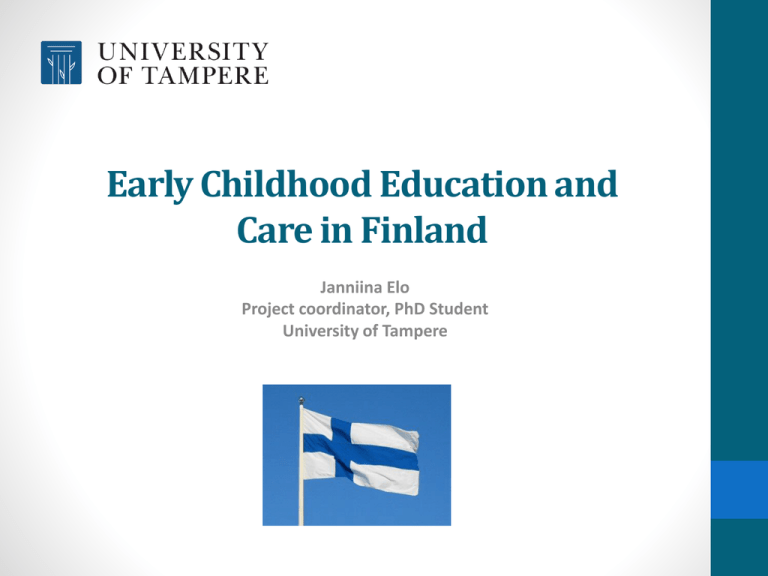
Early Childhood Education and Care in Finland Janniina Elo Project coordinator, PhD Student University of Tampere ECEC in Finland every child’s subjective right = Access to child care and kindergarten is for every child Client Fees in ECE • Are based on the size and income of the family • Max. fee 250 €/ child/month • Free of charge for low income families • Client fees cover about 15 % of child care costs Child - adult ratios in ECE * 1 adult to 7 children for 3-6 year old children in child care centres. * 1 to 4 children for children under 3 years * 1 to 13 children in part-time kindergarten * 1 to 4 in family day care Teachers’ qualifications: In child care: Teachers have either Bachelor’s degree (3 yrs) from the university or degree from polytechnical school (3 yrs) The other staff is required to have at least a secondary level degree in education In kindergarten / pre-primary: Bachelor’s or Master degree Primary school teacher Master’s Degree (5 yrs) NATIONAL CURRICULUM GUIDELINES ON EARLY CHILDHOOD EDUCATION AND CARE IN FINLAND The National Curriculum Guidelines serves as a basis for local municipal - curricula and for the curricula implemented in the child care centres and other forms of ECEC, such as family day care. Aims to promote the provision and the quality of ECEC on equal terms throughout the country Steers the planning, development, and the evaluation of the content of the activities Pedagogy in practice Parents and teachers in co-operation draw up an educational plan for every single child according to child’s needs, interests and his developmental challenges Teacher supports and supervises child’s learning and individual development in a child care group ”In ECEC, it is important to underline the intrinsic value of childhood, to foster childhood, and to help the child to develop as a human being.” Finnish ECEC is based on: Teacher’s pedagogical awareness Parent teacher partnership Joy of learning connected to children’s everyday life Children as meaning makers Child-centered pedagogy Play & peer interaction Leadership and quality assessment ”Children play for the sake of playing, and at best, play can give them deep satisfaction. Although children do not play in order to learn, they learn through play.” Evaluating the Quality of the Child Care in Finland What parents and teachers emphasize in ECEC? (Hujala, Fonsén, & Elo 2012) Assessments by quality factors Thank you for your interest! Janniina.elo@uta.fi
